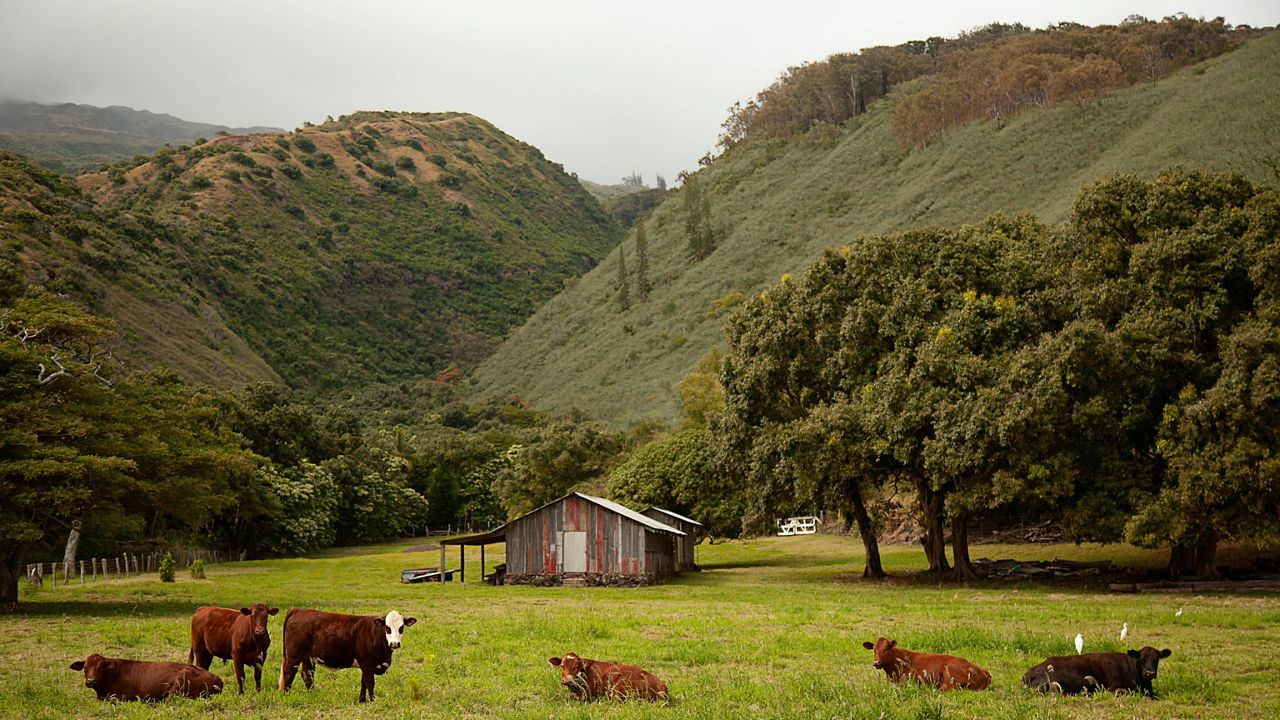Bovine tuberculosis was discovered on Molokai, prompting the Hawaii Department of Agriculture to issue a quarantine order on April 8 to restrict the movement of all hooved animals, except for horses, according to a press release.
Cattle and swine herds that are confirmed or suspected of being infected are slaughtered.
Last year, the Hawaii Department of Agriculture issued a quarantine order on six herds that were infected with bovine tuberculosis between Central and West Molokai.
The recent island-wide quarantine was prompted by the discovery of more infections of bovine tuberculosis over the past few months, and it applies to cows, sheep, goats, pigs, deer and antelope. To move these animals, a permit will be required from the State Veterinarian’s office.
“With recent detections, this quarantine is necessary to help protect uninfected herds on Molokai and also livestock across the state,” said Phyllis Shimabukuro-Geiser, chairperson of the Hawaii Board of Agriculture.
This does not impact hunting for wild deer, antelope, pigs, sheep and goats on Molokai, but wildlife on Molokai are being tested for the disease with the help of local hunters.
Mycobacterium bovis is a bacterium that causes bovine tuberculosis, and it usually affects cattle. However, humans and other animals can become infected too.
The bacterial disease has a history on Molokai that dates back to the 1940s. In 1985, bovine tuberculosis was so widespread on Molokai that the Hawaii Department of Agriculture killed all the cattle on the island.
Once the animals are killed, the infected tissue is buried, so that they will no longer be contagious, according to Hawaii Department of Agriculture officials.
In June 2021, bovine tuberculosis was found in a small cattle herd in Central Molokai, and a neighboring herd was also discovered to be infected. Both herds were killed.
In November 2021, the disease was found in four slaughtered pigs during a routine test at a farm in west Molokai. After the infection was discovered, officials tested all the animals on the farm and about half of the swine herd was found to be infected as well as one cow that lived on the farm. The area was placed under quarantine and the animals were killed.
The origin of this outbreak has not yet been discovered, but other swine farms in Central Molokai were quarantined and the pigs on the premises are currently being killed.
In January of this year, more herds were found to be infected in Central and West Molokai.
An ongoing drought on Molokai is believed to have weakened the immune system of animals and caused more contact between wild animals and livestock, which may have contributed to these outbreaks.
Michelle Broder Van Dyke covers the Hawaiian Islands for Spectrum News Hawaii.



